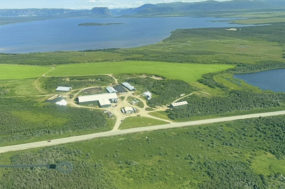If we consider Ministry of Labour (MOL) requirements as well as our duty as an employer, the answer is simple. Yes, everyone on your team needs to be trained – and this is why.
What should you train team members on?
Everything could be dangerous on the farm, and that is understood – by the MOL, team members and anyone who understands agriculture. However, it is your duty as an employer to practice due diligence.
This means it is your legal obligation to “take every reasonable precaution” to protect a team member’s health and safety while working with you. This means training them on any task, or part of a job, which may pose a threat.
Also, there are specific legislated trainings all employees need to be trained on, such as WHMIS (GHS), Workplace Violence and Harassment, and Worker Health and Safety Awareness in 4 Steps.
How is this done?
Start from their first day. When you hire a new employee, set time aside to train them on the hazards they may encounter at work. Yes, some things are unpredictable, and yes, cows have minds of their own.
However, we can mitigate these threats by training the new hire on handling cattle, such as how to use body language and “herd mentality” to work with them, signs of a nervous cow, etc.
By covering these areas, you are potentially saving the life of your new hire, as they are made aware of the danger they may encounter and how to keep themselves safe.
Once you have trained new hires, then you can conduct group training sessions with all of your team members, covering a few topics per meeting.
For example, you have lunch together one day for an hour and talk about safe procedures for vaccinating, footbaths (dealing with chemicals, etc.) and trimming hooves. Have everyone sign off and keep those documents together.
Reality check
Let’s say Anne is a part-time milker on your dairy. Things have been getting busy lately, so you ask her to vaccinate the dry cows for you. She’s seen you do it before, and you’ve taken the time to show her the do’s and don’ts, including safety precautions.
So Anne locks the headlocks, gathers her vaccines, comes back, and all of the cows she needed are locked … Anne is having good luck so far. She goes to vaccinate #2486, who is eating and is known by Anne to be a gentle soul.
Without thinking, Anne reaches over the cow’s head to the side of her neck – when the cow jumps and her head catches Anne’s arm at the top of the gate. Anne’s arm is broken, and she is off work for six weeks.
Why training and documentation is important
As this is deemed a “critical injury” by the MOL, an inspector will come out to assess how this injury occurred and what could have been prevented. The inspector asks if you trained Anne on this task, and you say yes, and Anne even states she was trained.
Then the inspector says, “Prove it.” But you never had Anne sign anything; it was on-the-job training. However, since you cannot demonstrate your due diligence in training Anne, you will be held responsible for her injury, and the situation will be dealt with accordingly.
But if you had a piece of paper with the title of your “training course” at the top and Anne’s signature on it, you would have been able to prove your due diligence.
Training topics will vary per farm, and methods of training will vary also. By following the guidelines above, and remembering to act with due diligence in relation to health and safety training, you are one step closer to government compliance and a safe farm. ![]()

-
Danielle Pasztor
- Farm Safety Specialist and HR Consultant
- PeopleManagement Group Inc.
- Email Danielle Pasztor









